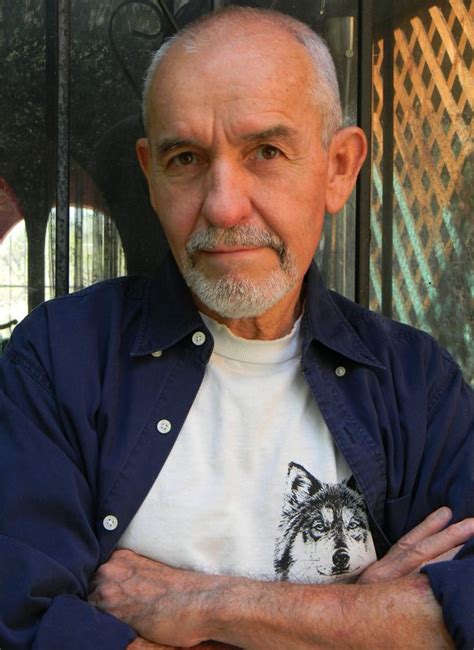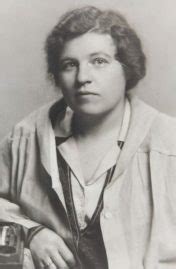A Quote by James Carlos Blake
The shed of leaves became a cascade of red and gold and after a time the trees stood skeletal against a sky of weathered tin. The land lay bled of its colors. The nights lengthened, went darker, brightened in their clustered stars. The chilled air smelled of wood smoke, of distances and passing time. Frost glimmered on the morning fields. Crows called across the pewter afternoons.
Related Quotes
I grew up in those years when the Old West was passing and the New West was emerging. It was a time when we still heard echoes and already saw shadows, on moonlit nights when the coyotes yapped on the hilltops, and on hot summer afternoons when mirages shimmered, dust devils spun across the flats, and towering cumulus clouds sailed like galleons across the vast blueness of the sky. Echoes of remembrance of what men once did there, and visions of what they would do together.
Land! An island! We devoured it greedily with our eyes and woke the others, who tumbled out drowsily and stared in all directions as if they thought our bow was about to run on to a beach. Screaming seabirds formed a bridge across the sky in the direction of the distant island, which stood out sharper against the horizon as the red background widened and turned gold with the approach of the sun and the full daylight.
The infinitesimal seedlings became a forest of trees that grew courteously, correcting the distances between themselves as they shaped themselves to the promptings of available light and moisture, tempering the climate and the temperaments of the Scots, as the driest land became moist and the wettest land became dry, seedlings finding a mean between extremes, and the trees constructing a moderate zone for themselves even into what I would have called tundra, until I understood the fact that Aristotle taught, while walking in a botanic garden, that the middle is fittest to discern the extremes.
He lowered the window, and looked out at the rising sun. There was a ridge of ploughed land, with a plough upon it where it had been left last night when the horses were unyoked; beyond, a quiet coppice-wood, in which many leaves of burning red and golden yellow still remained upon the trees. Though the earth was cold and wet, the sky was clear, and the sun rose bright, placid, and beautiful.
The colour of a British wood in autumn is predominantly yellow. There are relatively few European trees which have red leaves in the autumn. But there are splashes of crimson or rust-red colours from a few indigenous trees, like the rowan, as well as from introduced species, like the North American red oak.
Awareness is that state of mind which takes in everything-the crows flying across the sky, the flowers on the trees, the people sitting in front, the colors they are wearing - being extensively aware, which needs watching, observing, taking in the shape of the leaf, the shape of the trunk, the shape of the head of another, what he is doing.
Honey comes out of the air At early dawn the leaves of trees are found bedewed with honey. Whether this is the perspiration of the sky or a sort of saliva of the stars, or the moisture of the air purging itself, nevertheless it brings with it the great pleasure of its heavenly nature. It is always of the best quality when it is stored in the best flowers.
...trees to cool the towns in the boiling summer, trees to hold back the winter winds. There were so many things a tree could do: add color, provide shade, drop fruit, or become a children's playground, a whole sky universe to climb and hang from; an architecture of food and pleasure, that was a tree. But most of all the trees would distill an icy air for the lungs, and a gentle rustling for the ear when you lay nights in your snowy bed and were gentled to sleep by the sound.
Something told the wild geese
It was time to go.
Though the fields lay golden
Something whispered, "snow."
Leaves were green and stirring,
Berries, luster-glossed,
But beneath warm feathers
Something cautioned, "frost."
All the sagging orchards
Steamed with amber spice
But each wild breast stiffened
At remembered ice.
Something told the wild geese
It was time to fly-
Summer sun was on their wings,
Winter in their cry.
Me? I was lost for long time. I didn’t make any friends for few years. You can say I made friends with two trees, two big trees in the middle of the school […]. I spent all my free time up in those trees. Everyone called me Tree Boy for the longest time. […]. I preferred trees to people. After that I preferred pigeons, but it was trees first.
Morning drew on apace. The air became more sharp and piercing, as its first dull hue: the death of night, rather than the birth of day: glimmered faintly in the sky. The objects which had looked dim and terrible in the darkness, grew more and more defined, and gradually resolved into their familiar shapes. The rain came down, thick and fast; and pattered, noisily, among the leafless bushes.




































